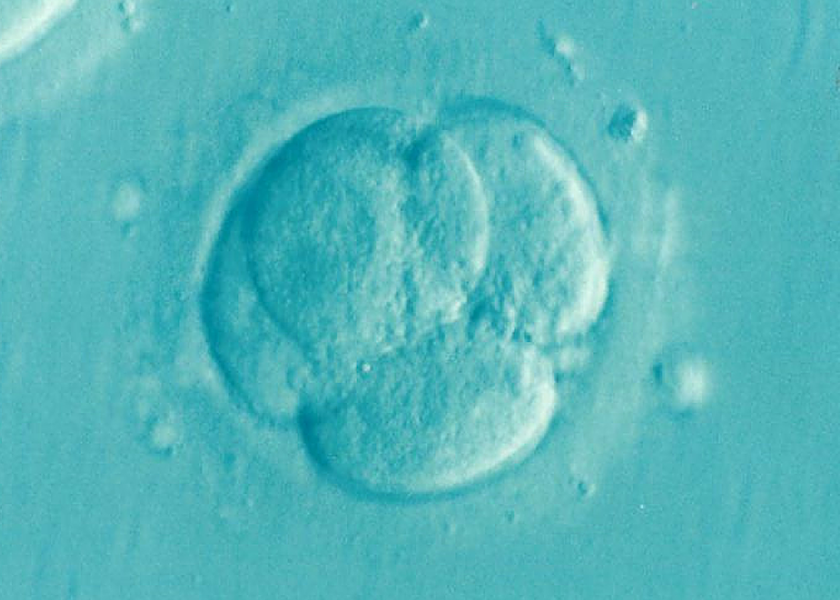Hormone can Reduce Pregnancy Loss after Embryo Transfer

Embryo transfer can be a great tool to maximize a cow’s reproductive efficiency. Not only does it allow her to have multiple calves per year, but in can also boost the amount of offspring she has throughout her lifetime.
The technology, however, can be costly -- especially if the embryos do not survive.
During a Professional Dairy Producers of Wisconsin webinar, Dr. Paul Fricke, professor of reproductive physiology at the University of Wisconsin-Madison (UW-Madison), along with Elisa Cabrera, a veterinarian and UW-Madison reproductive master’s student, presented on how to decrease embryo loss after an embryo transfer procedure.
Increase Progesterone
“Progesterone is a key hormone in the establishment and maintenance of a pregnancy,” Cabrera says. “Increasing the concentration of progesterone can increase pregnancy rates and decrease pregnancy losses after embryo transfer.”
One way to help bump up progesterone concentration is to utilize the hormone human chorionic gonadotropin (hCG). According to Cabrera, hCG binds to the luteinizing hormone receptor in cattle and can induce ovulation of a dominant follicle. If administered seven days after ovulation, hCG can induce an accessory corpus luteum (CL) to form, which leads to an increase in progesterone concentrations.
Giving hCG to a recipient animal the day of embryo transfer could especially be viable during in vitro-fertilizatin (IVF) embryo transfer scenarios, according to Fricke.
“IVF embryos aren’t normal, they have higher rates of embryo losses, but it appears that we can do something about that with treatment,” Fricke says. “2.5 mL [of hCG] seems to be the optimal dosage for ovulating a follicle.”
By administering hCG, recipients will have a higher ovulatory response due to the formation of an accessory CL. This extra CL will help to improve the concentration of progesterone during embryo transfer, which in turn helps to improve conception rates and decreases the chance of embryo loss, according to Cabrera.
Reducing Pregnancy Loss
During a recent study conducted by Fricke along with former graduate student Angela Niles, the effect of hCG was examined to determine if administering the hormone after embryo transfer decreased the likelihood of embryo loss in Holstein heifers.
The study used nearly 300 Holstein heifers split into two groups, one receiving 2.0 mL of hCG at the time of embryo transfer and the other group set as the control. Blood samples from the heifers diagnosed as pregnant were collected between days 32 and 67 of the pregnancy and were tested for progesterone levels along with pregnancy-specific protein B concentrations.
In conclusion, treatment on Holstein heifer recipients with hCG did not affect the number of pregnancies per embryo transfer, but it did help reduce the number of pregnancies lost between day 32 and day 67 of the pregnancy.
According to Cabrera, treating dairy heifers with hCG can be a promising strategy to increase heifer fertility after embryo transfer. Based on the study, hCG helped to reduce pregnancy loss by 50% during the first 67 days of pregnancy. While treatment with hCG did not affect whether or not an animal conceived, it did reduce the likelihood of that animal experiencing an early embryonic loss following the embryo transfer.







